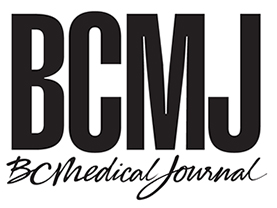

Being just 3 months younger than Canada, the Canadian Medical Association (CMA) is one of our country’s oldest societies. The association’s first president, Sir Charles Tupper, was a founding father and the first and last physician–prime minister.
Unlike provincial associations, the CMA is not involved in remunerative negotiations. It is free to critique government policies that clash with the needs of patients and health workers without fear of reprisals from its de facto employer.
About 15 years ago, I was elected CMA president. The CMA staff I encountered were extremely impressive and knowledgeable. They and the elected delegates welcomed and supported me in my mission to create a better system for all. My years there were hectic, productive, and filled with optimism.
Canadian doctors lack the political influence that doctors in Britain enjoy. I attended the British Medical Association’s 2008 annual meeting in my birth town of Liverpool. Tom Sackville had been a junior health minister under Margaret Thatcher. He revealed that the Iron Lady feared confrontation with doctors, remarking, “She fearlessly took on Gorbachev and the Red Army and asserted her will over Ronald Reagan; she decimated the power of the British trade unions; she ordered the British Navy, with heir to the throne Prince Andrew on board, to the South Atlantic to engage Argentina in war. She drew the line at waging battle against the BMA.”
There is no such fear of the CMA by our government.
Governments avoid controversial policy issues. That’s why decisions on abortion, same-sex marriage, assisted dying, prisoners’ rights, safe-injection sites, and medicare have ended up in the courts.
A 2007 independent study on the costs of waiting for care revealed the economic cost of waiting across just four provinces was $14.8 billion. Long wait times impose both medical and monetary harms on patients and the economy. The calculations did not include waiting from GP to specialist consultation, nor the long-term costs of chronic irreversible harms, drug addiction, and depression. Other studies estimated that mental illness cost our economy $51 billion in just 1 year. We pay to prevent patients from being treated, and shorter wait lists would actually save money. Preventive medicine should not mean preventing patients from being treated.
We also advocated for wait-time guarantees and patient-focused (activity-based) funding (both will soon be policy in Quebec).
Dr Barry Turchen presented a study at the CMA using BC’s Freedom of Information and Protection of Privacy Act (despite government opposition). He found that administrative costs in BC’s system were 16%, representing 6 to 7 times what was claimed, and over 3 times that of US public Medicare. An earlier report by Commissioner Judi Korbin had pointed out that 80% of all new health care jobs in BC were in middle management.
During my tenure, Dr John Haggie (CMA president, 2011), put forward a motion at the CMA asking that Canada’s Auditors General investigate such costs. They did not respond. Dr Haggie later became Newfoundland and Labrador’s Minister of Health and, so far, has not ordered such a review in his province.
My time at the CMA taught me a great deal about the health disparities between different communities in Canada. We did succeed in pressuring governments to train more health workers in Canada. That was too little and too late.
Last year I surveyed former CMA leaders on their thoughts on the state of our system and how the CMA was performing. Almost all respondents opined that the CMA had lost influence with doctors and government. It was not reaching out to its grassroots membership and was enjoying its new status as a very wealthy entity after the sale of MD Financial Management to Scotiabank for almost $3 billion.
The following CMA policy preceded my tenure: “When timely access to care cannot be provided in the public health care system the patient should be able to utilize private health insurance to reimburse the cost of care obtained in the private sector.”
Yet the CMA refused to participate in a constitutional case aimed at making its own policies on health insurance and freedom to practise matters of government policy. Its membership among practising physicians has dropped and, sadly, given the CMA’s historical roots in Quebec, the Quebec affiliate has disbanded. Doctors of BC has ended compulsory membership.
For what I believe was the first time in its long history, the CMA recently suspended a member, denying them the chance to stand in a democratic election for nominee as president-elect. The courts overturned the suspension and awarded substantial costs against the CMA. The CMA’s action appears to demonstrate a lack of concern for the democratic process and members’ assets. Its $3 billion windfall means it does not need to consider its members, nor does it need their annual dues to remain viable.
Our 1926 BCMA president, Dr J.H. MacDermot, warned: “Our noble tradition that no sick person of any age, sex, race, or religion whatsoever, shall ever suffer for need of medical care . . . should be based on our willingness to give. . . . It should not be exploited: nor should it be assumed as a God-given right. Least of all should it be a right-of-way for needy and penurious governmental and administrative bodies.”
Dr MacDermot’s warning has become a reality. Patients and their doctors are now controlled and dominated by the state.
I am concerned about the CMA’s lack of action and support for doctors, their patients, and the democratic process. Something needs to change, and I see some hope in light of the current impressive elected presidential line. But they need democratic grassroots support and input. Let’s give them what they need.
—Brian Day, MB
hidden
 [11] [11] |
| This work is licensed under a Creative Commons Attribution-NonCommercial-NoDerivatives 4.0 International License [11]. |
Links
[1] https://bcmj.org/cover/julyaugust-2022
[2] https://bcmj.org/author/brian-day-mb
[3] https://bcmj.org/node/9191
[4] https://bcmj.org/sites/default/files/BCMJ_Vol64_No6-editorials_0.pdf
[5] https://bcmj.org/print/editorials/cma-something-needs-change
[6] https://bcmj.org/printmail/editorials/cma-something-needs-change
[7] http://www.facebook.com/share.php?u=https://bcmj.org/print/editorials/cma-something-needs-change&via=BCMedicalJrnl&tw_p=tweetbutton
[8] https://twitter.com/intent/tweet?text=The CMA: Something needs to change&url=https://bcmj.org/print/editorials/cma-something-needs-change&via=BCMedicalJrnl&tw_p=tweetbutton&via=BCMedicalJrnl&tw_p=tweetbutton
[9] https://www.linkedin.com/sharing/share-offsite/?url=https://bcmj.org/print/editorials/cma-something-needs-change&via=BCMedicalJrnl&tw_p=tweetbutton
[10] https://bcmj.org/javascript%3A%3B
[11] http://creativecommons.org/licenses/by-nc-nd/4.0/
[12] https://bcmj.org/modal_forms/nojs/webform/176
[13] https://bcmj.org/%3Finline%3Dtrue%23citationpop